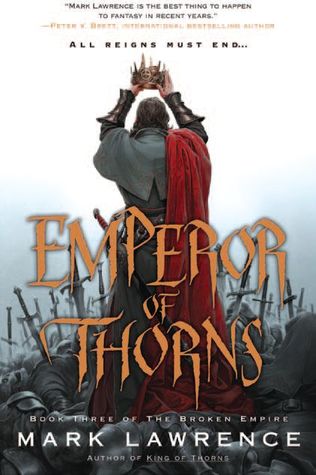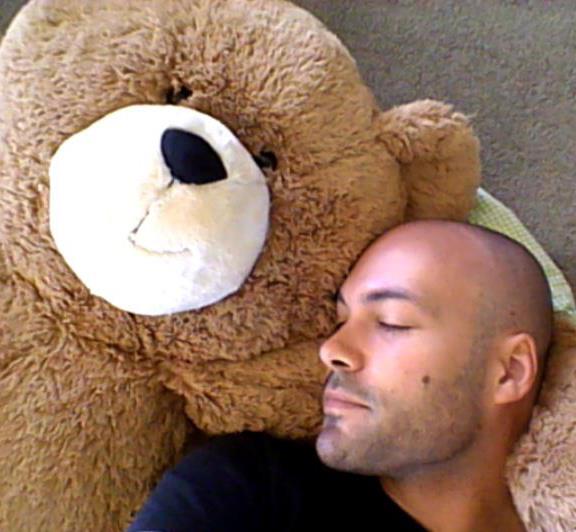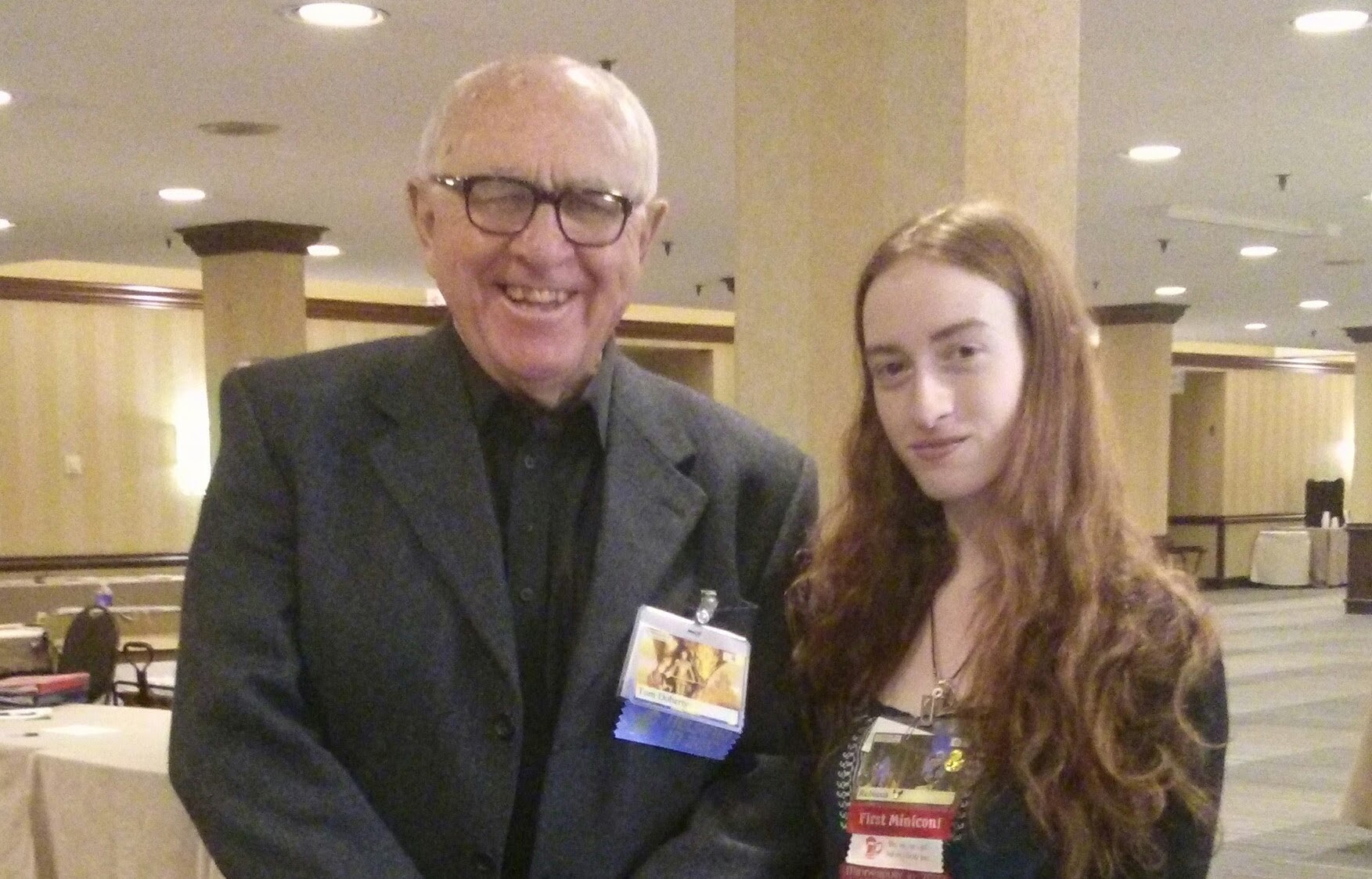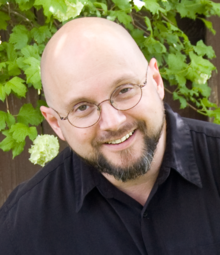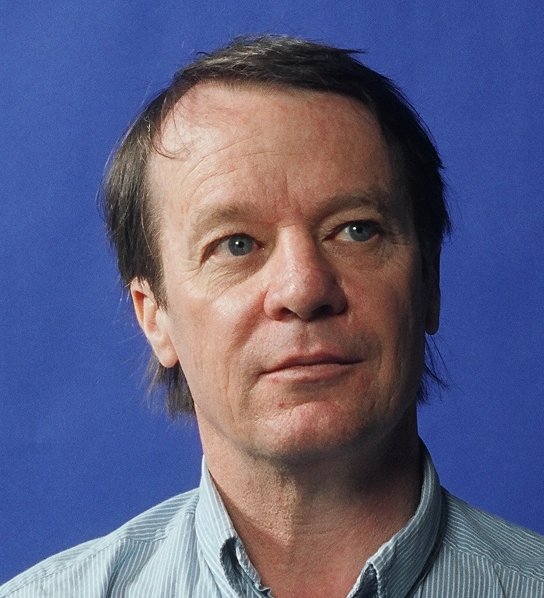
Interview with Ian Irvine
A few weeks back I had the pleasure of interviewing Ian Irvine; author of the Three Worlds Cycle and The Tainted Realm series among others. He was very interesting to talk with, and I hope that you guys enjoy as much as I did!
For convenience, I = Ian Irvine, and R = Rebecca, (me).
—-
R: Can you tell us a little bit about yourself?
I: Sure. I never had any intention of being an author, though I always loved books. I wanted to be a scientist, and I studied the sciences in university – mainly geology and chemistry. It was only in my early 20s that I started to really read fantasy, and it wasn’t for another 15 years, when I was in my mid-30s, that I seriously started writing. That was a long time ago – 1987, to be precise.
Other than that, I’ve been married for 37 years, I have four grown-up children and I live in the country a few hundred km north of Sydney. I’ve been working for 30 years as an environmental scientist specialising in marine pollution issues, and I have a little consulting company set up for that. I write pretty much full-time, but I still do a few months of consulting every year.
R: That leads nicely into my next question; how has being a scientist influenced your writing?
I: That’s a good question. Well, writers write out of their background, whether it’s from their family life, their work, life experiences, interests, passions or beliefs – or all of them. As a scientist, I’ve had different work experiences to draw from compared to a lot of other writers. Tolkien, for example, was primarily interested in the languages, and many fantasy writers have a passion for ancient or medieval history.
It’s these experiences, and a writer’s background, which colour how and what they write. In my writing, I often use scientific ideas and images, though I would point out that I do so within a fantasy framework – I’m not writing science fiction disguised as fantasy.
It also relates to world-building. Many writers are not trying to create genuinely original worlds, but prefer to draw heavily on ancient or medieval history of some particular nation or area, or on mythology or fairy tales, as a basis for their fantasy worlds.. With my background in the sciences, particularly geology and biology, I felt that I had the necessary background to create different and plausible new worlds, and I’ve had a lot of fun doing so. Though it has to be said, these days I do less world-building than I used to.
Personally I never wanted to create fantasy that was strongly based on our own world – I didn’t want my stories to be based on or inspired by Celtic history or myth or any other known source.
I wanted to take readers to places they wouldn’t go, or see, or read about, anywhere else. Now, they’re not all necessarily created from my imagination, but it’s more that those places just don’t exist in our world. It’d difficult, and certainly presents a lot of challenges, but I think that that’s something that’s important to do – to challenge yourself as a writer.
A lot of writers just write what they’re comfortable with, and there’s nothing wrong with that – a lot of them are more successful than I am. However I don’t want to let my fans down. I don’t want them to pick up one of my books and be bitterly disappointed by it – or feel that I’m writing the same story over and over – I want my latest stories to be just as fresh and creative as the early ones were.
It’s a lot of work, that.
R: Well, you know I’m going to have to ask about the next series you’ll be working on…
I: I finished The View From the Mirror series back in early 1999 and the third and fourth books of the quartet were published that year. And a year later, I promised fans that I would one day write a sequel series to it, possibly called The Fate of the Children, because the ending of the series, though complete in every way, also raises a teasing question as to what will happen next –
The Well of Echoes trilogy. At the end of The Way Between the Worlds, Karan’s friend Maigraith wanted to mate one of her children with one of Karan’s, so as to form a new and better human species… and this was utterly abhorrent to Karan. She would never agree to it.
Subsequently, in The Well of Echoes quartet, which is set 205 years later, we discover that both Karan’s and Llian’s reputations have been destroyed and that (spoiler alert!) they were pursued relentlessly by the Numinator, who turns out to be Maigraith. We also come to realise that not all of the terrible things that have been said about Karan and Llian are true, but we don’t find out what happened to her, Llian, or their the children. What happened behind all of that? How much of it is true? What happened? Over the past 13 years, the most frequently asked question I’ve received is, “When are you going to write the sequel”.
The answer, is: “I’m writing it now.” I finished the final edits for Justice three weeks ago, 1st week of July, and I’ve also checked the proofs, revised the maps and glossary and all the other bits and bobs that make up the final book. So now I’m free – all my writing commitments are complete, and I plan to devote myself to the sequel pretty much full time for the next three years. But the first book won’t appear for some time, so I’ve promised fans that I’ll make some short stories, and perhaps a novella or two, available in the meantime, just to give people the feel of the world.
The series will be a trilogy, I reckon, and first book will begin about seven years after the end of The View from the Mirror. At this stage I’m not sure how many years the trilogy will cover. People who have read my later Three Worlds books know that they span a considerable time, and I haven’t worked out the details yet.
However, returning to that story is a formidable challenge. It’s rare for a sequel series to be as good as the original. So, it’s daunting to try and make it as good as it the original quartet was, and yet, totally different. Daunting, but exciting, too.
R: Great! I look forward to it.
I: I’m very excited about it – and about working with some favourite old characters again.
R: Do you think you’ll have any difficulty switching back to that style?
I: Yes, definitely. I started A Shadow on the Glass back in 1987, which was quite a long time ago, and that was 11 years before it got published. I’m not the same person I was back then. I’m a more accomplished writer – though I don’t know if I’m a much better storyteller. We’ll see. The View From The Mirror was also written in a more elevated, High Fantasy style, and I don’t write that way anymore.
Why not, you may ask? After each fantasy series, I always write something completely different to recharge my creative batteries, and every new series I write requires a different style. For instance my Eco-Thriller trilogy, Human Rites, which begins with The Last Albatross, was set in our own world in the near future, and the first book had a first-person narrator; it required a very different style. After that, I wrote a dozen children’s books in three series, and with every series, my writing changed to suit the needs of the story and the audience. For instance, my series of 4 chapter books, The Sorcerer’s Tower, could only be 10,000 words each (one of my big fantasy novels is 200,000 words) and the audience was 7-10 year olds.
R: Yeah, you’ve written 28 novels since A Shadow on the Glass.
I: That’s right – Justice, which is published in October 2013 in Australia, and June 2014 in the US and UK, will be the 29th. They add up to 4.1 million words, which is a lot because I’m not a fast typist, and I go through many drafts in writing. Still, I love being a writer; I never have any trouble going to the office to work, and I’m always looking for new things to write about.
The 1st book in my new Three Worlds series, which doesn’t have a title yet, will be my 30th novel. As I mentioned, I was going to call it “The Fate of the Children”, but unfortunately one of the books in The Song of the Tears trilogy was called “The Fate of the Fallen” in the UK so I have to think of a new title.
R: Could you tell us a little bit about your writing process? Do you outline, or are you a discovery writer?
I: I used to be a discovery writer; I was very much so for A Shadow on the Glass and the four or five books after that. There was very little planning involved. I had created the worlds long before, and done a lot of world-building and development of thousands of years of history and already drawn most of the maps that you can see in the books, but very little plotting. I found it very difficult to plot, never having written a book before. So I made the stories up as they went along. I started off with the main characters (Karan and Llian) being in a heap of trouble, and only got them out of one difficulty to land them in a bigger one, and I kept doing that to the end of the book.
With those early books, I didn’t find outlines to be helpful, but as I’ve written more and more, I’ve begun to do more planning really. And there’s a good reason for this: because I’ve written so many big books,, I’ve used up an awful lot of story ideas, characters, settings, and plots and, like all other writers, the more one writes, the more one tends to repeat oneself. By doing a very detailed story outline I can analyse the plot and the characters and change or twist things to avoid repetition.
For instance with my latest book, Justice, the final book of the Tainted Realm trilogy, I did a scene-by-scene breakdown, which ended up being 60 pages long. And it was fantastically useful! It had a solid structure, and I didn’t end up going down any blind alleys that I wasn’t supposed to.
R: That certainly sounds handy, and like a lot of work. I wanted to ask you a question about your writing; in your novels, there’s distinctly a lack of “Good vs. Evil”. I know you’ve talked about this before, but would you mind going over it again?
I: Certainly. When I started out 20+ years ago, mostly in the 70s and 80s, the struggle of good vs evil predominated in fantasy, for instance in the stories by Terry Brooks, Raymond E. Feist, Tad Williams, Stephen Donaldson and others. As it did in The Lord of the Rings which had influenced so may fantasy writers. While I enjoyed these writers’ work, I also felt that focusing most of fantasy on one theme was stereotyping the genre, which was a shame. Fantasy is the broadest of all genres and there are hundreds of themes that could be used other than good vs evil.
When I thought about it, I regarded The View From the Mirror as a Darwinian fantasy, because it’s not about good or evil or right or wrong, but rather about the struggle for existence between four different human species, each of which has as much right to live as the others.
Tali, the female hero from The Tainted Realm, is a basically good person who often does bad things in her quest for justice. As an 8-year-old girl she saw her mother murdered, and she swore on her mother’s body to gain justice for her, and . Now, at the age of 18, that oath is the most powerful force in her life. But in order to gain justice, she has used many people, including her friends, and it has lead to some terrible consequences. Her moral dilemma becomes more acute as the story progresses. Can she overcome her desperate urge for justice, or will it turn into a lust for vengeance that will destroy her?
There’s nothing wrong with tales about good vs evil, of course. People read fantasy to have their moral values reaffirmed, or as an escape when their lives feel out of control. In fantasy, sometimes the complexities of life are simplified, and it helps people to feel good after the hero triumphs. They wouldn’t get that release if the bad people win, and you would lose readers if they did. So, I won’t deny that those stories do have a purpose.
R: Alright, thank you… And what was your inspiration to write fantasy?
I: I discovered fantasy in my 20’s while I was at university, and over the next few years I read almost all there was. This was back in the early 70’s when there wasn’t a huge amount of fantasy available, and it was possible to could read almost everything that had been written in the genre – unlike today, when there are many hundreds of fantasy novels published every year. I read everything that was to my taste fairly quickly, and soon discovered that there wasn’t much vast and truly epic fantasy around, and it was around that time I decided to have a go at writing it myself, one day when I had the time.
Though, it wasn’t until the mid-80s, after a long gestation period, that I actually sat down to seriously write.
R: And if you could meet any of those characters in person, which one would it be?
I: Xervish Flydd, the scrutator who first appears in Geomancer, and is present through the next six books of the Three Worlds saga.. He’s a fascinating character: brilliant, dominating, sometimes cruel, sometimes kind, and always interesting. I never designed or planned him. He simply appeared on the page, fully formed, and I never had to ask myself what he was going to say.
Karen would also be nice to meet in person, she’s one of my favourites, and the first character I created in detail. She was influential on my life, too, given that I spent 12 years with her, writing and revising, over and over. Actually, I think I’d like to meet most of my characters.
R: Yeah, I imagine Karen and Llian would be fun to meet.. Also, what are your thoughts on the digitalization of the publishing industry?
I: It’s exciting, challenging and threatening at the same time. It’s a rapidly changing world and I don’t think anyone can predict what the world of publishing will look like in ten or fifteen years time. Until recently, the big multinational book publishers controlled the industry, yet in a few years control has steadily ebbed towards the big online resellers like Amazon and Apple which now control 70% of the ebook market. Mass market paperbacks are dying, and bookshops are rapidly disappearing. In a few years time, I reckon that most books will only be published as ebooks and only big name authors will be published in print – the economics simply won’t be there. Which is sad.
The other confounding factor is the staggering rise in self-publishing. 10 years ago there were about a quarter of a million book titles published a year in printed form, in English, and there still are. But now we have to add to that more than 2 million ebook titles, most of them self published. And because ebooks never go out of print, the number is going to grow massively every year, which means that every year the average sales per book has to get smaller – ie, it will become ever harder for authors to make a living.
It also means that every year there’s more competition for an author to be recognized, and it may be that in the future the people who sell the most books not the great storytellers, but those who are the best at marketing themselves.
The digital future is exciting, challenging, threatening, worrying, though there’s also more opportunities to get books out. A lot of authors are starting to think about if they’re best served by publishers, or should they go the route of self-published, and just spend more money on an editor? They’d be able to sell at a lower price, but also get a bigger cut from the royalties. Interesting times.
R: Definitely, we’ll just have to see how it’s going to play out over the next pile of years.
I: It’s going to be an interesting ride.
R: Yup, and I only have a couple more questions yet. These ones are fun ones though… What is your favourite book, or author?
I: I don’t have a favourite one. If you had asked me two decades ago, I would have said the Lord of the Rings. And Jack Vance’s books. I also quite like Tad Williams and Lois McMaster Bujold – her fantasy works more than her SF.
I don’t read a huge amount of fantasy anymore, I’ve read so much that a lot of it is just really familiar. As well, I think a lot of authors, myself included, find it harder to read in the genre they write in as time goes on. I find I’m reading more thrillers, and crime fiction than I do fantasy.
My favourite crime author at the moment is C.J. Sansom, whose protagonist is a hunchbacked lawyer, Matthew Shardlake, during Henry VIII’s reign. The first novel in that series is called Dissolution
My favourites will undoubtedly be different in a year or two, depending all on what I’m reading at the time.
R: Great, I’ll have to take a look into their writings, I’ve never read anything by either of them.
And, my last question: If you could be any flavour of ice cream, what flavour would you be?
I: I would be chocolate ice cream with Grand Marnier liqueur topping.
R: Awesome! Thank you for taking the time to answer my questions, I appreciate it!
I: You’re welcome, thank you too.
